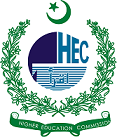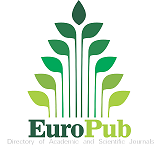Assessing the Factors Influencing Waqf Contribution Among Public Employees in Gombe Metropolis, Nigeria
DOI:
https://doi.org/10.58932/MULD0021Keywords:
Waqf, Public employees, Tobit regressionAbstract
Waqf is a significant socio-economic tool utilized by Muslim societies worldwide for the betterment of the public. Despite its recognized potential, empirical research on the factors influencing waqf contribution among Muslims in Nigeria, particularly in Gombe Metropolis, is limited. This study addresses this gap by examining the factors affecting public employees' participation in waqf initiatives. Data for this study is obtained through administration of structured questionnaire and analysed using Poisson and Tobit regression models. Our results indicate that waqf contribution among public employees is notably influenced by income level and trustworthiness. Additionally, the interaction between income level and factors like trustworthiness, religiosity, and altruism plays a significant role in enhancing employees' contributions to Waqf institutions. The policy implications suggest that stakeholders should encourage collaboration and integration of Waqf initiatives into public institutions, making it easier for employees to make regular contributions. There should also be specific awareness and educational programs designed to inform public employees about the significance and advantages of Waqf in promoting socio-economic development.
References
Abd Aziz, N. A., & Noh, M. K. A. (2019). Factors Influencing Willingness to Contribute for Waqf Education. International Journal of Modern Education, 1(2), 41-47.
Abdul Kareem, I. A., & Ogunbado, A. F. (2019). Factors Motivating the Establishment of Waqf Institution towards Poverty Alleviation among Muslim Ummah in Oyo State, South West, Nigeria. Journal of Islamic Banking & Finance, 36(4).
Abu-Zahrah, M. (2007). Waqf according to religion and laws (Wakaf menurut agama dan undang-undang), Jasmin Enterprise, Puchong.
Adnan, M. A. (2005). Akuntansi Syariah; Arah, Prospek dan Tantangannya, UII Press, Yogyakarta, Indonesia.
Aji, H. M., & Muslichah, I. (2022). Online cross-religion donation during COVID-19: mediating role of empathy and trust. Journal of Islamic Marketing, (ahead-of-print).
Aldeen, K. N., Ratih, I. S., & Pertiwi, R. S. (2021). Cash waqf from the millennials' perspective: a case of Indonesia. ISRA International Journal of Islamic Finance, 4 (2), 40-49.
Aliyu, S. U. (2019). Reflections on the socioeconomic role of waqf in an Islamic economic system. International Journal of Umranic Studies. 4(1), 31-43.
Ariff, M., & Iqbal, M. (2011). “The Foundation of Islamic Banking: Theory, Practice and Education”, UK: Edward Elgar Publishing.
Bashir, U., Saeed, S., & Abbas, S. K. (2020). Strategies for New Product Development in an Emerging Market. Advances in Social Sciences Research Journal, 7(4), 393-397.
Berakon, I., Aji, H. M., & Hafizi, M. R. (2021). Impact of digital Sharia banking systems on cash-waqf among Indonesian Muslim youth. Journal of Islamic Marketing.
Cizacka, M. (1998), “Awqaf in history and its implications for modern economics”, Islamic Economic Studies, 6(1), 43-70.
Echchabi, A., Eddine, C. O. H., & Ayedh, A. M. (2015). Awareness about waqf among Algerian students: an exploratory study. Journal of Islāmic Business and Management, 5(1), 23-43.
Fehr, E. & Schmidt, K. M. (2006). The economics of fairness, reciprocity and altruism–experimental evidence and new theories. In Kolm, S. C. and Ythier, M. J. (Eds.) Handbook of the Economics of Giving, Altruism and Reciprocity, 1, 615-691.
Hasan, R., & Ahmad, A. U. F. (2020). Cash Waqf Crowdfunding Model for SMEs. In Handbook of Research on Theory and Practice of Global Islamic Finance (pp. 338-353). IGI Global.
Hasan, R., Hassan, M. K., & Rashid, M. (2019). Mediating role of trust in cash Waqf donations. In Revitalization of Waqf for Socio-Economic Development, Volume II (pp. 293-317). Palgrave Macmillan, Cham.
Hasan, Z., & Abdullah, M. N. (2008). The investment of Waqf land as an instrument of Muslims ‘economic development in Malaysia. The Dubai International Conference on Endowments’ Investment, 4-6th February 2008, 1-25.
Hassan, M. H. (2007), “Explaining Islam's special position and the politic of Islam in Malaysia”, The Muslim World, 287-316.
Kahf, M. (1999). Financing the development of awqaf property. The American Journal of Islamic Social Sciences, 16 (4), 39-66.
Kahf, M. (2003, January 6-7). The role of waqf in improving the ummah’s welfare. Paper presented at the International Seminar on Waqf as a Private Legal Body, Medan, Indonesia.
Kasri, R. A., & Chaerunnisa, S. R. (2021). The role of knowledge, trust, and religiosity in explaining the online cash waqf amongst Muslim millennials. Journal of Islamic Marketing, 13(6), 1334-1350.
Kassim, M., Embi, N. A. C., Haron, R., & Ibrahim, K. (2019). Internal Factors Affecting Continuous Donations among Cash Waqf Donors. International Journal of Academic Research in Business and Social Sciences, 9(9), 1304–1311.
Lamido, A. A., & Haneef, M. A. (2021). Shifting the paradigms in waqf economics: towards renewed focus on socioeconomic development. Islamic Economic Studies, 29 (1), 18- 32.
Latiff, A. Z. A., Ismail, C. Z., & Daud, N. M. (2008), “Waqf: The management and contribution towards Islamic education in Malaysia (Wakaf: Pengurusan dan sumbangannya terhadap pendidikan Islam di Malaysia)”, Shah Alam: UPENA, Universiti Teknologi Mara (UITM).
Leeuwen, R. (1999). “Waqfs and urban structures: The case of Ottoman Damascus”, Leiden: BRILL.
Maddala, G. S. (1992). Introduction to Econometrics, 2nd Ed. New York Macmillan Publishing Company.
Md Saad, N., Kassim, S., & Hamid, Z. (2013). Involvement of Corporate Entities in Waqf Management: Experiences of Malaysia And Singapore. Asian Economic and Financial Review, 7, 36-56.
Mohsin, M. I. A. (2013). Financing through cash-waqf: a revitalization to finance different needs. International Journal of Islamic and Middle Eastern Finance and Management, 6(4), 304-321.
National Bureau of Statistics, NBS, (2019). States Nominal Gross Domestic Product (2013-2017). Abuja, Nigeria: NBS
National Population Commission, NPC, (2017). National Population Estimates. Abuja, Nigeria: NPC
Nigerian Investment Promotion Commission, NIPC, (2022). Nigerian States: Gombe State. Abuja: NIPC. https://www.nipc.gov.ng/nigeria-states/gombe-state/
Nuruddeen, M. I. (2014). Socio-Economic Role of Waqf in Kano, Nigeria: Reconsidering the Evidence and Suggesting a Need for Understanding Waqf Donors’ Philanthropic Motivations. Available at SSRN: https://ssrn.com/abstract=2468076 or http://dx.doi.org/10.2139/ssrn.2468076
Pitchay, A. A., Sukmana, R., Ratnasari, R.T. & Abd Jalil, M. I. (2023). A study of cash waqf contribution between millennials of Malaysia and Indonesia. International Journal of Islamic and Middle Eastern Finance and Management, 16(4), 802-818. https://doi.org/10.1108/IMEFM-01-2022-0034.
Rusydiana, Aam S, & Rahayu, S. S. (2019). Bagaimana Strategi Pengembangan Wakaf Tunai di Indonesia? Jurnal Ekonomi Dan Bisnis Islam, 5(1), 15–33.
Sadeq, A. M. (2002). “Waqf, Perpetual Charity and Poverty Alleviation”, International Journal of Social Economics, 29 (1/2), 135-151.
Setia, A. (2011), “Harvard University & some fiscal problems of privately endowed higher education in the USA. In: Second International Symposium of Awqaf - Waqf and education: Innovative Models”, Institute for Islamic World Studies, Zayed University, UAE.
Usman, M., & Ab Rahman, A. (2020). Funding higher education through waqf: a lesson from Pakistan. International Journal of Islamic and Middle Eastern Finance and Management, 14 (2), 409-424.
Verbeek, M. (2004). A Guide to Modern Econometrics, 2nd Ed.. West Sussex, England: John Wiley & Sons Ltd.
Wooldridge, J. (2010). Econometric Analysis of Cross Section and Panel Data, 2nd Ed. Cambridge: The MIT Press.









